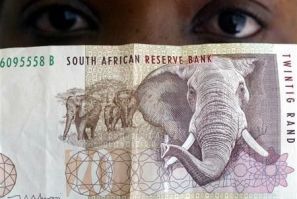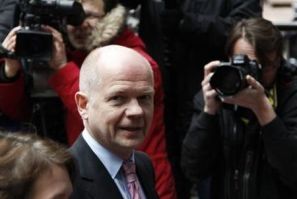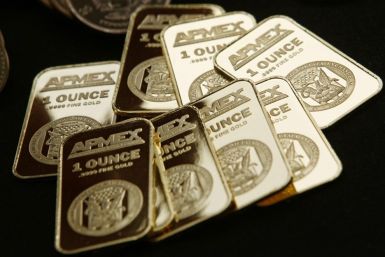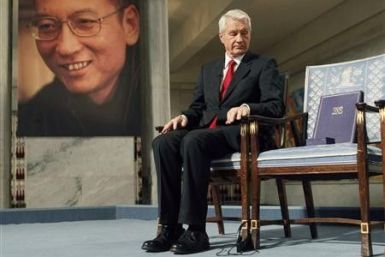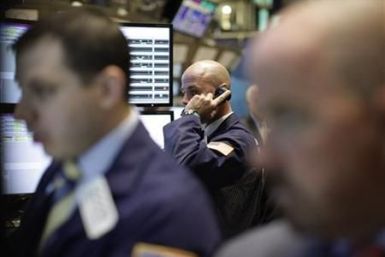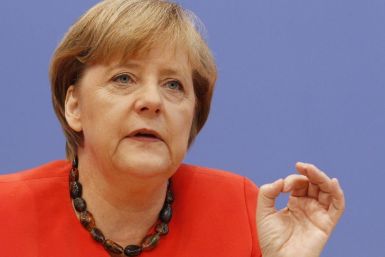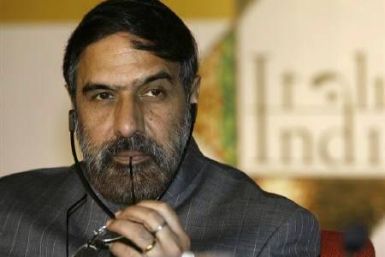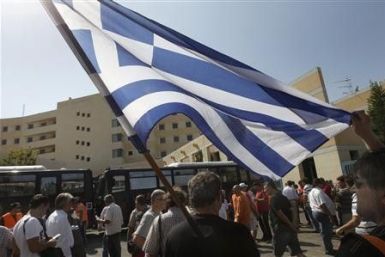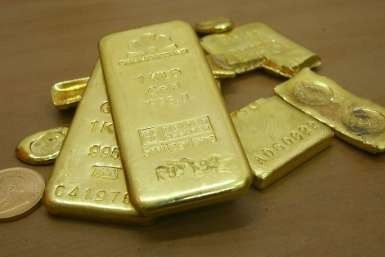Gold prices gained steadily if modestly Friday as demand from India and bargain hunting offset a resumption of investor flight to dollar liquidity.
This year's Nobel Peace Prize -- to be announced in a week -- will be as interesting as the ones awarded to Barack Obama and Chinese dissident Liu Xiaobo, the head of the Norwegian Nobel Committee told Reuters Thursday.
Citigroup CEO Vikram Pandit said the current turmoil in the global financial markets will not be a repeat of the 2008 downturn, Singapore newspapers reported on Friday.
The Dow and S&P 500 rose on Thursday on stronger-than-expected economic data and German lawmakers' approval to strengthen the euro zone's crisis fund, while big-cap Internet shares dragged on the Nasdaq.
When Stratfor, a geopolitical intelligence firm, takes on the euro crisis and Greece, you know it's going to offer a fresh perspective.
The U.S Justice Department has requested more information from Google regarding its $12.5 billion bid for Motorola Mobility, Google said Wednesday.
Silver mining company shares rose solidly Thursday, even though the price of silver itself was up a mere 0.4 percent.
The euro rose against the dollar on Thursday as the German parliament approved the euro zone rescue fund's new powers, though Skepticism over the lack of a comprehensive plan to deal with the region's debt crisis was seen to be checking gains.
Germany's parliament approved new powers for the euro zone's crisis fund on Thursday but it was not clear if Angela Merkel got enough votes from her coalition to silence rebels worried about funding a series of bailouts of countries like Greece.
Germany's parliament approved new powers for the Eurozone's crisis fund on Thursday with a large majority.
India and Pakistan agreed on Wednesday to further liberalise trade flows with tentative moves such as opening a second customs post and issuing more visas, seen as bolstering a fragile peace process between the two nuclear-armed rivals.
German Chancellor Angela Merkel faces a battle for her political survival on Thursday when some of her coalition, worried about throwing good money after bad by bailing out Greece, could humiliate her in a parliament vote on euro-zone rescue schemes.
International auditors return to Athens on Thursday to deliver a verdict on whether Greece's tougher austerity measures qualify for aid to avert a default that would plunge the country into bankruptcy.
One may be tempted to think that a bailout from the European Central Bank (ECB) will send the euro higher against the U.S. dollar because it will calm Eurozone debt crisis fears.
In Syria, anti-government protesters continue undeterred as President Bashar al-Assad intensifies his forceful crackdown against demonstrations. Over the last five days, at least 76 people have been killed in the northern cities of Homs and Hama and in the southern Daraa region, according to activist reports.
Stocks were little changed on Wednesday after a three-day rally as investors waited to see if an audit of Greece's finances would lead to granting more aid to the country to avoid default.
Caution ahead of an audit of Greece's finances drove major world stock markets lower on Wednesday, while prices of commodities like oil and copper fell.
Stock indices have shown three consecutive days of gains. Indeed, the Dow had jumped 4.3 percent over the past three sessions, following deep losses incurred last week.
European Commission President Jose Manuel Barroso urged the European Central Bank to do everything in its power to maintain financial stability in the euro zone, saying the EU faced the biggest challenge in its 50-year history.
A decision of providing the Greek government with more badly needed bailout cash hinges on a review of Athens’ debt-reduction progress by officials from the European Commission (EC), European Central Bank (ECB) and International Monetary Fund (IMF).
If implemented, the tax would come into effect in 2014 and is expected to generate about $78 billion annually.
Gold rose on Wednesday, gaining from investor unease over the lack of a solution to the European debt crisis that dented other more industrial raw materials, such as crude oil and copper, ahead of further possibly weak U.S. data.







